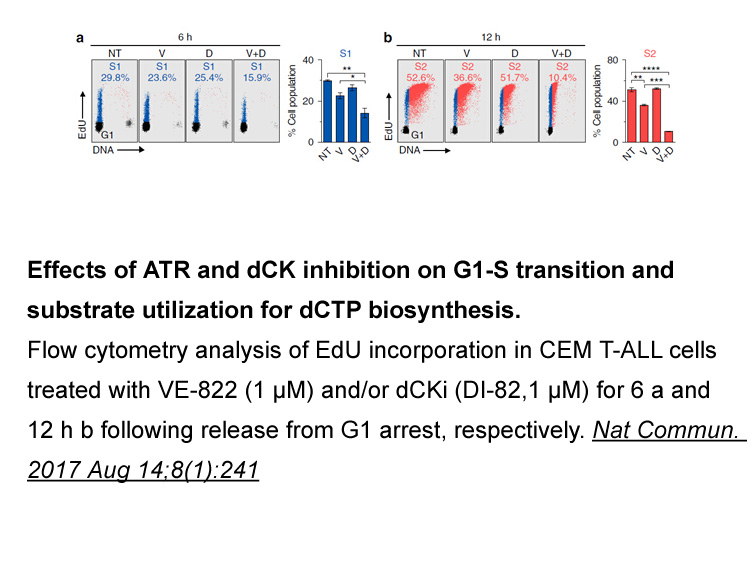Archives
The data regarding the association between COMT
The data regarding the association between COMT Val158/108Met and cognitive function are divergent [10,11,12,22,24,25,26,27,28]. Better performance on the ROCF immediate and delayed recall test among veterans with PTSD who were Met carriers, compared to Val/Val homozygotes, agrees with findings showing that carriers of the Val/Val genotype with PTSD frequently had more reductions in hippocampal volume [12] and worse memory retrieval [24] than Met carriers. It was also shown that PTSD subjects with Val/Val genotype had reduced functional connectivity between the hippocampus and prefrontal cortex during memory encoding-related activation patterns than Met carriers [25]. These differences in cognitive performance in carriers of different COMT genotypes might be due to the cortical hypodopaminergia in carriers of the Val/Val genotype, associated with worse cognitive performance, and deficits in executive and working memory functions [26]. All these findings might be explained with the lower dopamine availability in Val/Val carriers, suggesting an interaction between traumatic experience, lower dopamine and atrophy of the hippocampal and prefrontal regions, leading to the development and maintenance of PTSD and memory deficits in PTSD [12]. In contrast, Val/Val genotype carriers showed higher hippocampal activation after exposure to childhood trauma, which correlated with less PTSD symptoms and more trait resilience [27]. Regardless of the differences in traumatic experiences, these data suggest that COMT Val158/108Met might moderate the effect of traumatic stress on hippocampal function and subsequent development of resilience to psychopathology.
Our results provide the first report that the presence of one or two Met thrombin inhibitors of the COMT Val158/108Met might act as a protective variant in working memory tasks in combat exposed veterans with PTSD.
Acknowledgements
This work was partly supported by Croatian Science Foundation, project No. IP-2014-09-4289, PI: Nela Pivac. The authors thank the medical stuff form the Department of Psychiatry in University Hospital Dubrava (former affiliation of Ana Havelka Mestrovic).
Introduction
Well-being (also termed “happiness”) refers to the positive cognitive and affective evaluations of the evaluator’s life (Diener et al., 1999) as well as the evaluator’s experience of self-realization and good social relationships (Ryan and Deci, 2001). Well-being is beneficial to multiple life domains including physical and mental health and work performance (Lyubomirsky et al., 2005). The pursuit of well-being is one of the unalienable rights of human beings, as stated in the Declaration of Independence of the United States. However, the Declaration of Independence only guarantees the right to pursue well-being, not well-being per se.
The experience of well-being i s strikingly variable between individuals. Twin studies have established that a large portion of individual differences in well-being can be attributed to genetic factors, with heritability estimates of 38–54% (Lykken and Tellegen, 1996, Røysamb et al., 2002, Stubbe et al., 2005). Genetic studies also showed the involvement of serotoninergic genes in well-being (Chen et al., 2013, De Neve, 2011). Moreover, a recent large-scale genome-wide association study identified a set of genetic variants associated with well-being and depressive symptoms (Okbay et al., 2016). However, the existing evidence is insufficient for us to understand the psychobiological basis of well-being. The purpose of the current study is to investigate to what extent a particular polymorphism on the catechol-O-methyltransferase (COMT) gene would modulate well-being and to what extent individual differences in well-being are mediated by personality traits such as dispositional gratitude and forgiveness.
The COMT gene is located on chromosome 22q11 (Grossman et al., 1992). It encodes COMT protein, one of the major enzymes to degrade catecholamines such as dopamine and norepinephrine. Within the gene, a transition of guanine (G) to adenine (A) at codon 158, namely COMT Val158Met (rs4680), leads to a mutation of valine (Val) to methionine (Met). The Val/Val genotype is associated with about a 40% increased enzyme activity in the brain compared to the Met/Met genotype (Chen et al., 2004, Lachman et al., 1996).
s strikingly variable between individuals. Twin studies have established that a large portion of individual differences in well-being can be attributed to genetic factors, with heritability estimates of 38–54% (Lykken and Tellegen, 1996, Røysamb et al., 2002, Stubbe et al., 2005). Genetic studies also showed the involvement of serotoninergic genes in well-being (Chen et al., 2013, De Neve, 2011). Moreover, a recent large-scale genome-wide association study identified a set of genetic variants associated with well-being and depressive symptoms (Okbay et al., 2016). However, the existing evidence is insufficient for us to understand the psychobiological basis of well-being. The purpose of the current study is to investigate to what extent a particular polymorphism on the catechol-O-methyltransferase (COMT) gene would modulate well-being and to what extent individual differences in well-being are mediated by personality traits such as dispositional gratitude and forgiveness.
The COMT gene is located on chromosome 22q11 (Grossman et al., 1992). It encodes COMT protein, one of the major enzymes to degrade catecholamines such as dopamine and norepinephrine. Within the gene, a transition of guanine (G) to adenine (A) at codon 158, namely COMT Val158Met (rs4680), leads to a mutation of valine (Val) to methionine (Met). The Val/Val genotype is associated with about a 40% increased enzyme activity in the brain compared to the Met/Met genotype (Chen et al., 2004, Lachman et al., 1996).